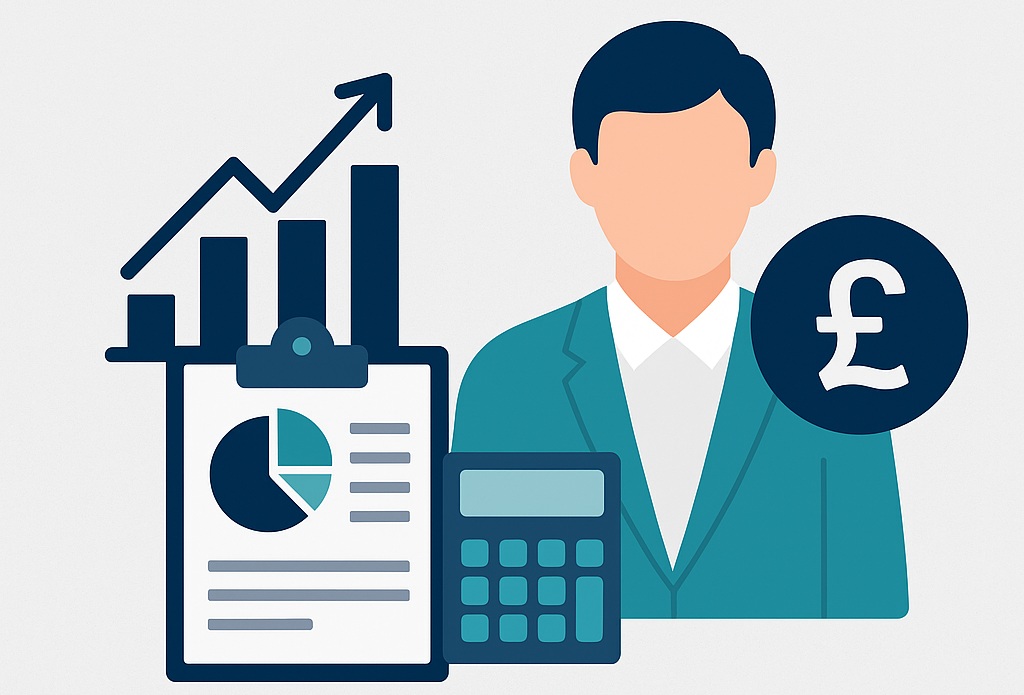If your private limited company has had a successful year in terms of profits, you may want to pay a dividend to shareholders.
This is a standard way of rewarding them, or else paying yourself if you are the sole shareholder of the company.
Paying a dividend from a private company is not something that can just be done with quick bank transfers. Like many financial activities, it must be recorded through the company.
Also, it is a procedure best done with guidance from a chartered accountant.
So, what are dividends and how are they paid from a private company?
What are dividends?
Dividends are payments made to a shareholder as a reward for their investment in the company.
They are paid from a company’s net profit, and are proportionate to the percentage stake a shareholder holds in the business.
Dividends paid to shareholders are subject to the respective shareholder’s personal income tax. However, there is an annual dividend allowance separate to your personal allowance.
For the tax year 2022-2023, this is £2,000.
For many companies, dividends are a routine payout that keeps shareholders happy.
How are dividends paid out?
Dividends usually take the form of cash (that is, any form of money including cheque and bank transfer). Some companies may pay dividends in the form of extra shares or other assets, though this is rarer and usually only occurs with large companies.
To pay dividends, you must:
- Hold a meeting of directors to declare the intention to pay dividends
- Keep minutes of the meeting
This has to take place even if you are the sole director and are essentially meeting with yourself, but this can simply be signed off by you.
Information such as the company’s name and business address must be recorded alongside details of the shareholder, the total number of shares they own, and the total dividend being paid.
This receipt, called a dividend voucher, is a written record to evidence the generation and payment of dividends for future reference. Accountants can produce these for you as part of their duties. NOT A DUTY
The company does not need to pay tax on the dividend payments.
How often are dividends paid out?
The frequency of dividend payments is ultimately at the discretion of private company directors.
There’s no set timetable, and one company may differ from the next in their approach due to differences in profits, size, or number of shareholders.
Large private companies might choose to pay their dividends quarterly, whereas private SMEs may want to pay their dividends monthly in order to give their shareholders a regular form of income and keep them engaged with their investments.
Between this, companies may simply choose to pay dividends ‘as and when’ according to their financial health. Private companies with only one or two directors may use dividends as a supplement to low director salaries.
Private companies can pay out dividends as often as they like, but an accountant can advise you on the best frequency to pay if you have the available capital. Many will prefer quarterly dividends for less complex bookkeeping.
Do private companies need to pay dividends?
No – private companies can choose to forgo dividend payments altogether and simply keep their profits. Even large and highly profitable companies may choose to do this so that they can invest back into the business itself and develop its assets.
Dividend payment decisions are made by the director, or board of directors, so shareholders cannot force or demand dividends. Dividend payments can also only be up to the recommended limits set by the directors.
The only influence that shareholders can have over dividend policy is through their votes regarding directors.
Pros and cons of paying dividends
Paying cash dividends can be a good indicator of your private company’s financial health, and often secures investor loyalty by rewarding high shareholder equity.
However, spending cash on dividends naturally means that there is less profit to invest back into the business, and so a company looking to reward growth with dividend payments could find that it is sacrificing greater growth next year.
Do I need an accountant to help pay dividends?
Like many financial matters in a company, there’s no legal obligation to have an accountant handle them for you, but it is essential that you keep your records accurately when paying a dividend from a private company.
Dividend vouchers must be made and issued, the dividend payments need to be recorded, and you must be aware that dividend payments cannot be counted as business costs when your business is working out Corporation Tax.
There’s a lot to know and a lot of ways to get it wrong – which is why many companies use a chartered accountant to make it easy and straightforward to pay dividends.
Venn Accounts can help you earn from your company
If you want to take money from your private company legally and without paperwork frustration, look no further.
Venn Accounts is a team of experienced chartered accountants using bespoke software solutions to make our work efficient and cost-effective.
To learn more about our cloud-based accounting services, contact us today.





